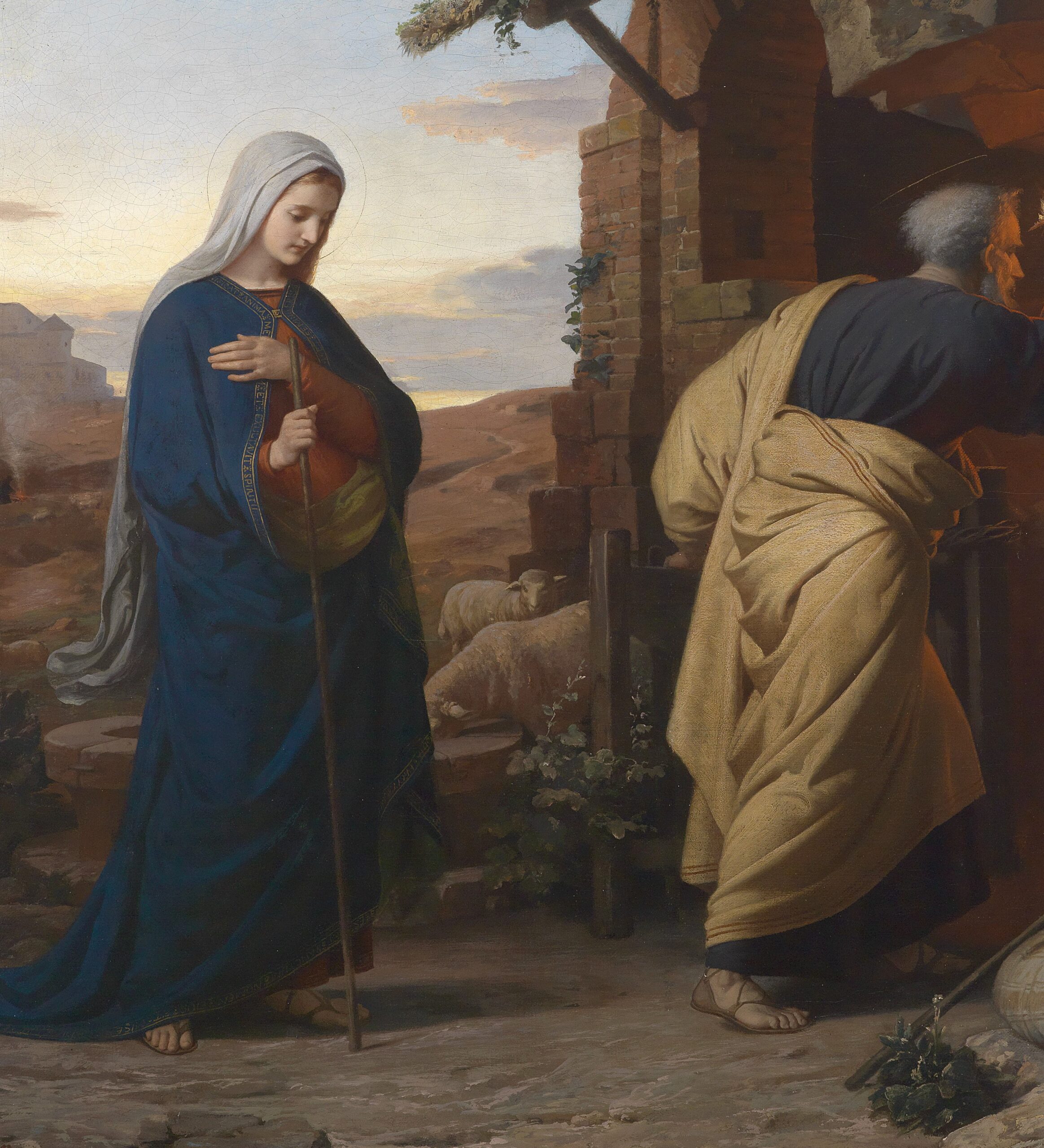True charity is more than sentiment—it is expressed in action toward the poor, the dying, and even our enemies. St. Alphonsus reminds us that almsgiving, prayer, and forgiveness are powerful works that unite us to Christ Himself, who tells us, “Whatever you do to the least of my brethren, you do to Me.”
Almsgiving
A very important duty of charity towards our neighbor consists in giving him alms when he is poor and needy and we ourselves are in a position to do so: “Of that which remaineth, give alms,” says our Blessed Redeemer. (Luke 11:41). But we must distinguish: If our neighbor is in extreme want we are bound to assist him with what is not absolutely necessary for our own sustenance. If his necessity is not extreme, but very great, we must help him with what we ourselves do not need. “Alms delivereth from death,” said the Archangel Raphael to Tobias, “and the same is that which purgeth away sins, and maketh to find mercy and life everlasting.” (Tob. 12:9).
“He that hath mercy on the poor,” says the Holy Ghost, “lendeth to the Lord; and he will repay him.” (Prov. 19:17). If we can do nothing else let us at least recommend him to God, for prayer is also an alms. “He that shall see his brother in need,” says St. John, “and shall shut up his heart against him, how doth the charity of God abide in him?” (1 John 3:17). “With what measure you mete it shall be measured to you again,” says our Blessed Redeemer. (Matt. 7:2). St. Mary Magdalen de Pazzi said she would feel happier by assisting her neighbor than if she were raised to heavenly contemplation: “If I am in contemplation,” said she, “God is helping me; if I assist my neighbor I am helping God.” This is very true, for Our Lord Himself said: “Whatsoever you do to the least of my brethren you do to me.” (Matt. 25:40).
Love Your Enemies
Above all things I would recommend to you charity towards your enemies. “Love your enemies,” says Our Lord, “do good to them that hate you; and pray for them that persecute and calumniate you, that you may be the children of your Father who is in heaven.” (Matt. 5:44). How sad it is to see Christians who go to church and even to Holy Communion and still retain enmity in their hearts! If anyone has injured you, and you wish to be revenged, try to act as the Saints have done. St. Paulinus tells us that to love one’s enemy is a heavenly revenge. St. Catherine of Siena took revenge on a woman who had attacked her honor, and this was her revenge: During a long and severe illness which the woman suffered, St. Catherine waited on her as a servant. St. Acacius sold his possessions in order to assist a man who had robbed him of his good name. St. Ambrose supported a man who had made an attempt on his life. Venustian, the Governor of Umbria, a persecutor of the Church, had the hands of St. Sabinus, Bishop of Spoleto, cut off because the Saint, instead of adoring an idol, broke it to pieces. Hereupon, the Governor was seized with such violent pains in the eyes that he called on the Saint to help him. Sabinus prayed for him and not only cured his body but also his soul; the Governor embraced the True Faith.
If you can do nothing else, dear reader, pray for those who have offended or injured you. The love that is directed to the spiritual welfare of your neighbor is doubtless the best. In the eyes of God says St. Bernard, a soul is worth more than the whole world. Could there be anything, therefore, more noble and sublime than to labor with Jesus Christ for the salvation of souls?
Assist the Dying
If you have an opportunity to assist the dying, remember that you are performing an act of charity very acceptable to God. St. Philip Neri often saw the angels putting words of consolation on the tongues of those who assisted the dying. See that the priest is called in time to administer the last Sacraments while the patient is still conscious. Suggest little acts of faith, hope, love and contrition. Assist the sufferer to pronounce the holy Names very often and to make acts of resignation to the Will of God. When the soul is departing, say the prayers for the dying and recommend the departed soul when it appears before the judgment seat of God. An evergreen wreath of prayers should be laid on the grave and frequent mementoes made during Holy Mass for a speedy entrance of the departed soul into the everlasting joys of our heavenly home.
ooo
This article is taken from a chapter in The School of Christian Perfection by Saint Alphonsus Liguori which is available from TAN Books.









